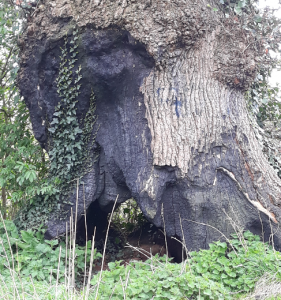The news headlines in recent times have reminded us of the many complex, traumatic and horrendous circumstances facing the international community. At the same time, news headlines here in Ireland repeatedly reveal similarly complex, traumatic and tragic circumstances facing us in our own towns and cities.
Ireland has not experienced a military invasion like Ukraine. We are not directly experiencing a major conflict with national, regional and geopolitical ramifications like what is occurring in Gaza and Israel. Nor has our country deteriorated into civil war as is happening in Sudan.
But we are experiencing increasing instances of individual and group behaviour that a number of years ago would have been unimaginable. A young woman murdered while taking a daytime walk along a small town’s civic amenity. Small children lining up outside their Dublin school attacked by a man wielding a knife. People who may have been born in another country, many who have become Irish citizens, viciously attacked on our streets. The street violence, burning publicly owned vehicles, vandalising property and looting retail shops which took place on 23rd November are further examples of how societal norms are under threat by those who seem to operate with a completely different worldview.
As a development and relief organisation, much of Tearfund Ireland’s work takes place in Ethiopia. Two years ago a major internal conflict in the northern part of Ethiopia cost thousands of lives, displaced hundreds of thousands of people and added further strain on the efforts to build resilience and reduce poverty in the region. Although that conflict has largely ceased, there are regions around the country in which ethnic tensions continue to boil over into disorder and violence. I recently spoke to an Ethiopian friend who, living in his hometown, commented that he doesn’t always feel safe in his own city.
The Tearfund Ireland office is located in a part of Dublin’s North Inner City which has been in the Irish headlines the last few months. Although none of our staff have had negative experiences, we are extremely aware of the risks and concerns frequently faced by people living and working in this area. Especially when a significant percentage of our team do not look or sound Irish born – because we’re not. But we have made our home here and desire to contribute to the overall good of Irish society.
This is one reason I am perplexed by what seems to be a common reaction whenever a tragic wrong is perpetrated against another person. Why does it seem that our first response is to attempt to blame someone in a position of authority? Why is our loudest public outcry to question why the Gardaí weren’t able to stop the crime from happening? At what point do we, as an Irish society, accept the fact that we need to begin having some difficult conversations?
Tearfund Ireland is a Christian organisation and, because of our faith perspective, we hold a conviction that the problems facing societies around the world are not unsurmountable. We believe all these problems are the result of an internal brokenness – a broken relationship between us and God, which affects all our relationships. But we also believe these broken relationships can be restored.
We work with people who are living in extreme poverty, suffering near-famine conditions, internally displaced and in conflict with their ethnically diverse neighbour. We have seen countless people in these circumstances experience a holistic transformation, where relationships are restored, resilience is built and they interdependently face the challenges of life with increased hope and esteem.
The similarities between our Irish headlines and that of our international neighbours reminds us that we truly are a global world. The brokenness, frailties and criminality of humanity are experienced by all. But these harmful outcomes of human brokenness do not have to be the final word of our collective story.
I believe God created all people in His image. Creation implies design. Design implies intent. Intention implies purpose. Therefore, since we have been created with a purpose, we have an opportunity, or responsibility, to co-create the society in which we live.
Let us search for creative solutions to the problems we face. Let us maturely and wisely interrogate the basis of the distorted, broken thinking which plagues our societies. Let us embrace our divine purpose and co-create a better future for ourselves and for the generations who come after us.
We are better than what we’re seeing in the headlines.
We can do better. We can become a better society.
Sean Copeland, 27 November 2023

